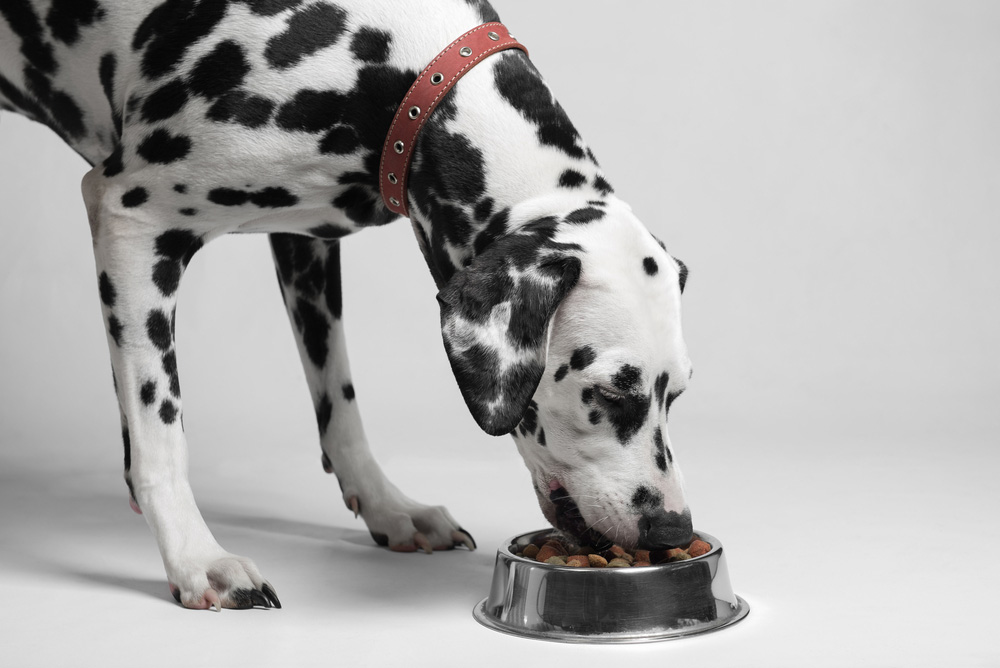Taurine often comes up when discussing feline heart health, as a diet low in taurine can cause cats to develop a disease called dilated cardiomyopathy (DCM), but what role does taurine play in dogs?
The whole taurine situation in dogs can be confusing, so we want to help clarify the issue a little by looking at this amino acid and what it does for dogs.

What is Taurine for Dogs?
Although taurine has a more prominent role in cats, it is just as important for dogs. Firstly, taurine is one of 22 amino acids that dogs use to make various proteins needed throughout their bodies. Amino acids are divided into essential and non-essential amino acids, with essential amino acids being those that dogs need to get from their food. Dogs can produce non-essential amino acids on their own.
Taurine is considered a non-essential amino acid because dogs can make it themselves if their diet contains the right ingredients. However, this is not true for all dogs. Certain dog breeds seem to be more prone to taurine deficiency and may require supplements. This includes the following dogs:
Dogs who are deficient in taurine may develop DCM, a condition in which the muscular walls of the heart thin and stretch, making them less efficient at pumping blood. Supplementing the diet with taurine may improve cardiac output in DCM and may help treat heart disease not related to taurine deficiency. Taurine may also help prevent retinal degeneration.1

How do I give taurine to my dog?
Taurine, sold under the names Dynataurine and Formula V, is found in many cardiovascular health supplements. It comes in liquid, powder, or tablet form and is usually given twice daily. Of course, the exact dosage and frequency will depend on your dog and the condition your vet is trying to treat.
Taurine supplements can be taken with or without food, but are best absorbed when mixed into a tasty meal.
What happens if I miss a dose?
If you forget to give your dog a dose of taurine supplements, it’s usually not a big deal. Give it as soon as you remember and adjust the dose time accordingly, or if it’s almost time for the next dose, skip the missed dose and continue with your normal schedule. Don’t give two doses at once or multiple doses within the allotted time. For example, if your dog is getting taurine every 12 hours, don’t give more than one dose within that 12-hour period.

Potential Side Effects of Taurine in Dogs
Taurine is something dogs normally produce and obtain through their food, so supplements are generally well tolerated, although some dogs may experience digestive upset, especially if given on an empty stomach.
Symptoms that may appear include:
- vomiting
- diarrhea
- Stomach pain
In general, it is best to take taurine with meals.

FAQ
Do dogs really need taurine?
Most dogs produce the taurine they need from the “building blocks” they get from the meat in their diet. However, some breeds are prone to taurine deficiency and require supplements. Research has shown that taurine supplementation can also prevent other types of heart disease and retinal degeneration.
Can too much taurine be harmful to dogs?
Although more research is needed, taurine has very low toxicity, so it’s unlikely for your dog to overdose on it. That said, check with your vet before giving it to your pet to see if any issues they may have could be helped by giving them a taurine supplement.
How do you test your dog for taurine deficiency?
Taurine deficiency can be diagnosed with a blood test. Your dog will need to fast for a period of time before the blood test is run, and samples may need to be sent to an outside laboratory.

Conclusion
Taurine supplementation is common in cats but may also be necessary for dogs. Certain dog breeds are prone to developing taurine deficiency dilated cardiomyopathy and other conditions that require taurine supplementation. Your veterinarian can advise you on the best product and how to give it to your dog.
Featured image credit: Dmitriev Mikhail, Shutterstock




